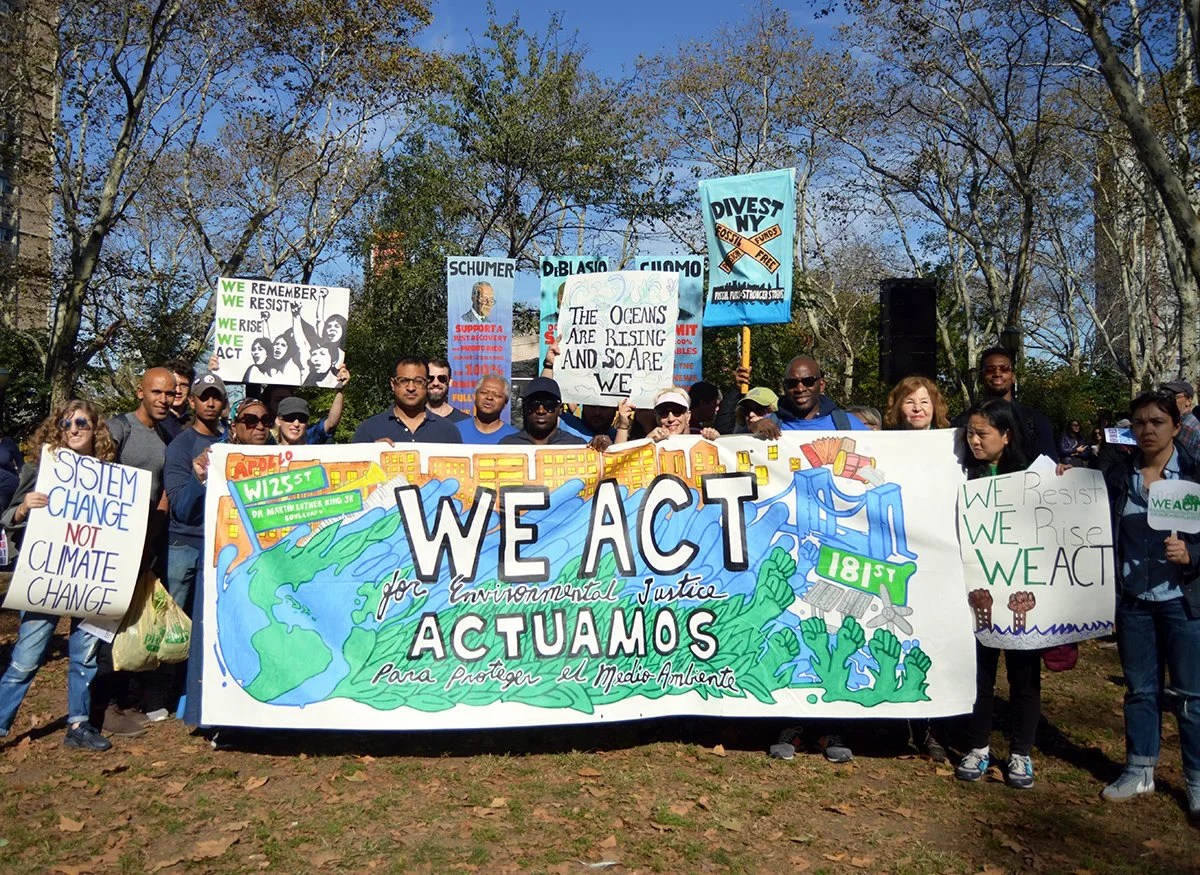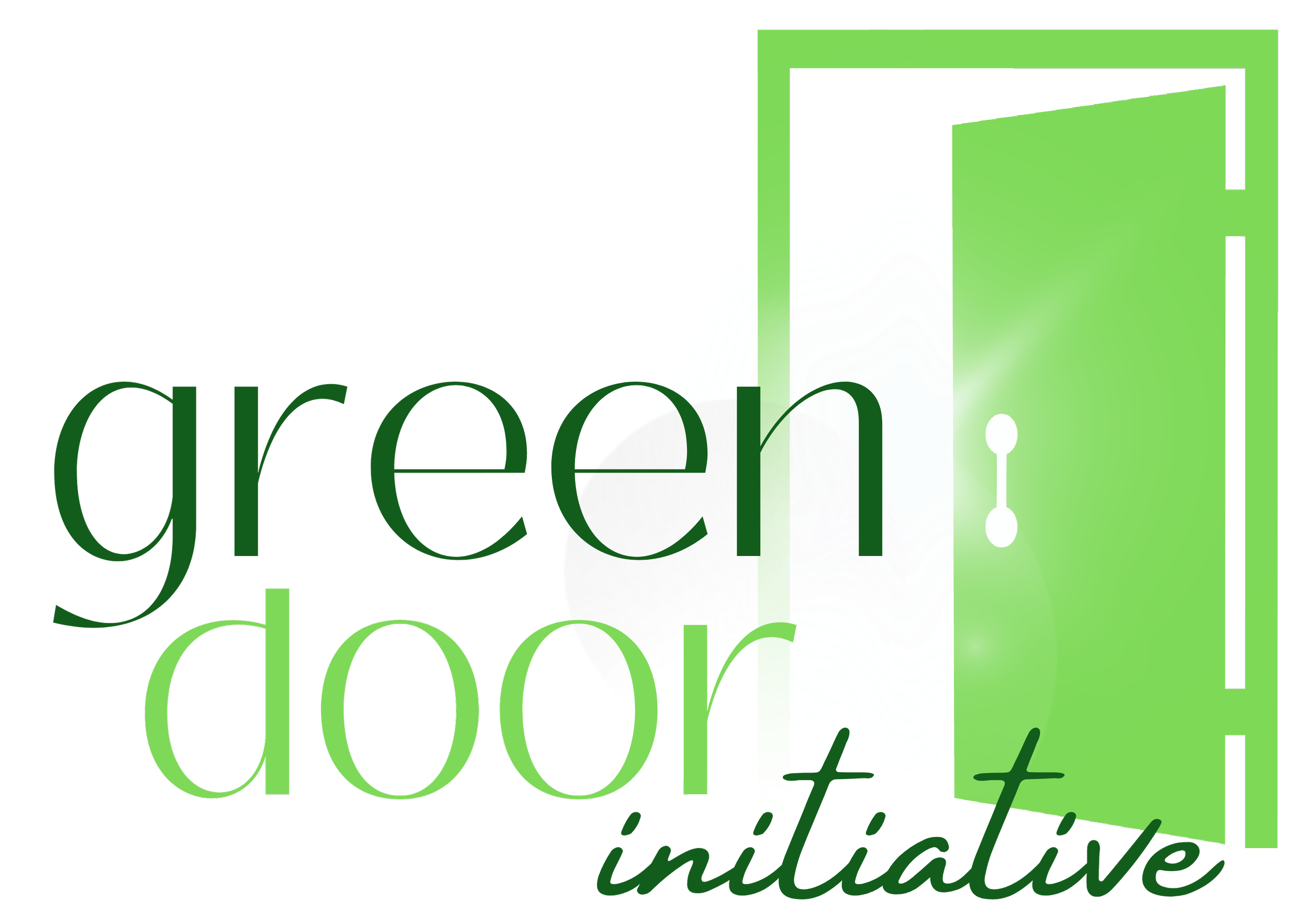About this Campaign
Healthy Homes First is a campaign by WE ACT for Environmental Justice. WE ACT defines a healthy home as one that not only avoids health and safety threats in the built environment, but also promotes mental, social, and environmental well-being. Living every day in an unhealthy indoor environment is a violation of basic rights, and environmental justice communities deserve to benefit from the transition to a clean energy future.
We are committed to securing healthy homes for all by ensuring a holistic approach for safe built environments. This means that residents are protected from extreme heat and cold, and have homes that are free from pests, mold, lead, and harmful indoor air pollution. We aim to achieve this hand-in-hand with efforts to weatherize and electrify buildings to improve affordability and reduce pollution. This combined approach will improve overall health and well-being for environmental justice communities that face inequities in public and affordable housing. Learn more about our healthy homes work in New York.
-
Environmental justice communities — communities of color and low-income communities that experience adverse human health and/or environmental effects due to systemic prejudicial policies and underinvestment - live with multiple sources of pollution and health harms in addition to dangerous housing conditions and deferred maintenance. This, on top of deadly extreme heat caused by the climate crisis and resulting increasingly high energy bills, make lead exposure, asthma triggers like mold and pests, and indoor air pollution from fossil fuel appliances like gas stoves, even worse.
-
WE ACT’s “Out of Gas, In with Justice” pilot and report showed that public housing residents were exposed to 190% higher average NO2 concentrations in kitchens with gas stoves than those with induction stoves. In DC and Maryland, of 700 kitchens two-thirds tested positive for unsafe levels of NO2. NO2 is a pollutant known to cause asthma and other cardiopulmonary effects as well as premature death.
-
WE ACT and our partners have been advocating to protect and improve programs that make housing healthier, safer, and more affordable, including the Low Income Home Energy Assistance Program (LIHEAP). However, this popular program - with our polling results showing over 74% of bi-partisan national voters and almost 90% of people of color in favor - is facing an existential threat as the Trump administration fired the entire program staff at Health and Human Services (HHS). With extreme heat being the deadliest impact of the climate crisis, and mortality rates from heat being much higher in low-income communities and communities of color, removing LIHEAP staff puts 6.2 million people at risk nationwide. A recent report by WE ACT and NRDC underscores that LIHEAP needs much more, not less, support and funding.
WE ACT for Environmental Justice is a Northern Manhattan membership-based organization whose mission is to build healthy communities by ensuring that people of color and/or low-income residents participate meaningfully in the creation of sound and fair environmental health and protection policies and practices. WE ACT has offices in New York and Washington, D.C. Visit us at weact.org and follow us on Facebook, Bluesky, and Instagram.
OUR PARTNERS
Our partners include environmental justice, housing, public health and human rights advocates, organizations and community members that believe affordable, safe, healthy housing is essential for the dignity and well-being of all.
Action in Montgomery is a broad-based community power organization, and rooted in Montgomery County’s neighborhoods and congregations. We are non-partisan, multi-faith, multi-racial, and dedicated to making our county and state a better place to live and thrive.
Founded in 1992, the Deep South Center for Environmental Justice is dedicated to improving the lives of community members of all ages who are harmed by pollution and vulnerable to climate change, through research and policy studies, community and student engagement to impact policy change, and health and safety training for environmental careers.
Wisconsin Green Muslims, a statewide grassroots environmental justice group formed in 2005, intends to educate the Muslim community and the public about the Islamic environmental justice teachings, to apply these teachings in daily life and to contribute to coalitions and collaborations working toward a just, healthy, peaceful and sustainable future.
The Midwest Building Decarbonization Coalition (Midwest BDC) seeks to develop and implement equitable strategies to achieve zero emissions from the Midwestern building sector by 2050.
PODER Austin (People Organized in Defense of Earth and Her Resources) is a women led, people of color grassroots social justice organization formed in 1991 to increase the participation of residents of East Austin in decisions related to the economic development and environmental protection of our communities. Our mission is to redefine environmental issues as social and economic justice issues, and collectively set our own agenda to address these concerns as basic human rights. We seek to empower our communities through education, advocacy and action.
GreenRoots is a resident-led organization dedicated to improving and enhancing the urban environment and public health in Chelsea, East Boston, and surrounding communities. We do so through deep community engagement and empowerment, youth leadership, and the implementation of innovative projects and campaigns.
Green Door Initiative’s mission is to ensure that everyone is environmentally literate, capable of promoting and living out a sustainable lifestyle regardless of race, income and zip code. The Green Door Initiative is facilitating the revitalization, rebuilding, and restoring of neighborhoods, particularly in low-income, people of color and underserved areas. We aim to achieve environmental and economic justice, and to ensure that local residents and justice involved citizens are empowered; and equipped to live healthy, sustainable lives fully participating in the green economy.









